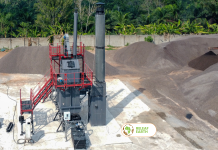The Nigerian equities market, however, suffered a decline in February with the NSE ASI falling by 9.1 per cent, while market capitalisation shed N1.119 trillion.
The market performance in February was negative compared with growth of 7.5 per cent recorded by the NSE ASI and a gain of N1.88 trillion posted by market capitalisation.
Also, the volume and value of trading were lower in February as investors traded 5.436 billion shares worth N74.591 billion in 80,507 deals as against 9.877 billion shares valued at N129.626 billion exchanged in 112,724 deals in January.
The NSE ASI, which closed at 28,843.53 in January, fell to 26,216.46 at the end of February, while market capitalisation declined from N14.857 trillion to N13.658 trillion.
Market analysts attributed the dismal performance in the review month to investors exiting due to concerns in the global market due to the outbreak of COVID-19 and unimpressive results released by some quoted companies.
Commenting on the February market performance, a stockbroker and Managing Director of Network Capital Limited, Mr. Oluropo Dada, said the decline in the oil price was raising fears of possible naira devaluation.
Also speaking on the market performance, a Senior Equity Research Analyst at Cordros Capital, Mustapha Wahab, said the earning released thus far, especially by cement and palm oil firms, have not be encouraging coupled with the fact that the January rally was domestic investors-led.
He explained that the liquidity surfeit in the financial system made many domestic investors to flock to the equities market in January hence the rally witnessed, noting that the story changed in February as weak earnings releases and CBN’s continued tight regulation of the banking sector is a concern for many investors.
He said: “January rally was domestic investors-led that was because of the liquidity surfeit in the system. The CBN engineered a deceleration in treasury bills and bond rates by segregating the fixed income market.
“Thus, given an unimpressive yield environment, domestic investors hurriedly accumulated equities as the liquidity in the system hunted for alpha.”
Wahab, noted that while domestic investors swooped on equities, foreign investors were unmoved since macroeconomic landscape was not different from last year.
A breakdown of trading activity in February showed that investors staked the highest value in the last week of the month, committing N24.263 billion on 1.547 billion shares in 21,646 deals.
The second highest investment was made in the first week as investors staked N20.295 billion on 1.478 billion in 23,263 deals, while the third week accounted for N17.907 billion invested in 1.499 billion in 18,515 deals.
Investors splashed N12.126 billion on 912 million shares in 17,083 deals.
Source: THISDAY












